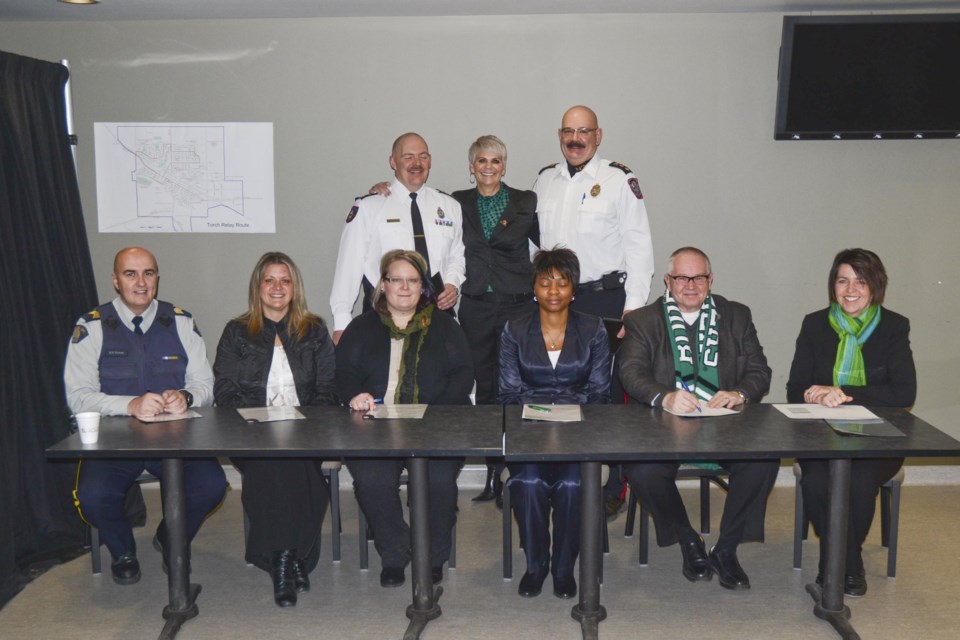An innovative program that has been proven to reduce crime is making it's way to southeast Saskatchewan.
Although it has been in operation since May, an official signing ceremony was held for the South East Region Community Mobilization Hub Friday at Affinity Place.
The hub is made up of staff from the Estevan and Weyburn Police Services, RCMP, Sun Country Health Region, Social Services and Corrections and Policing, and the Cornerstone and Holy Family School divisions. The group works together to develop an assistance plan for individuals or families in at-risk scenarios.
The program was first piloted in Prince Albert and has since spread to a number of communities throughout the province with more to be added in the future. The southeast hub is the first regional program. It currently is focused on Estevan and Weyburn as well as communities in between but will eventually spread out to the rest of the region.
Representatives from each agency as well as Corrections and Policing Minister Christine Tell were on hand for Friday's event and all involved spoke highly of the collaborative approach used by the hub.
Chief Marlo Pritchard of the Weyburn Police Service estimated that since they began working together in May, they have already seen some success stories in the roughly 20 cases they've handled.
"We have all of our agencies sitting at a table every week and all of the agencies are building processes to bring cases or situations forward to the table and we discuss it," Pritchard said.
"Those individuals that are deemed as an elevated risk for either victimization or other issues, the plan comes right out of that table, so it's not one agency dealing with it and passing it onto another. It's a collaborative approach and within two to three days we are doing an early intervention, and what we are seeing is some really quick results."
Pritchard added that in some cases, the people they are dealing with are familiar to the various agencies. However, since the creation of the hub, what may have taken up to a year in the past is handled in just a couple of weeks.
"We all come at it from a different perspective, and we don't all take part in the early intervention; it may not have anything to do with police so maybe it is health and education that go in. Other times it may be police and health. It's that flexibility; everyone is at the table, and it works really well."
Chief Del Block of the EPS was on hand for Friday's ceremony and noted they have already had some cases in Estevan that were brought to the hub and, like Pritchard, has been pleased with the results.
"There is a real benefit within the community from this," Block. "The other thing is, we don't just treat the symptom, we look for the cause and try and address it. We find that we are keeping people out of the justice system if you can change their life and give them the assistance they need.
"Lots of times too, when people are committing criminal acts or failing to go to school, it really is a cry for help. They don't know that at the time, and we don't see it at the time, but when you get looking into it, it really is a cry for help. Once we get them connected to the right organizations we get them on the right path. We have seen that happening already, and I think we'll see more of it."
Block added that a number of his officers have represented the EPS, and he has been very pleased with the buy in.
"I find it is working really well."
Tell spoke about the success of the hub programs in other Saskatchewan centres, noting they have all had positive impacts in their communities.
"We all know that we can't arrest our way out of a problem such as this," Tell said. "That doesn't work, it's not sustainable. All we end up having is people in our systems and in our correctional facilities that probably shouldn't be there, but if we address it at a proper point early on, they may not be there as an end result."
Tell said as part of the provincial growth plan the government has committed to expanding the hub program to 10 communities by the end of 2014.




